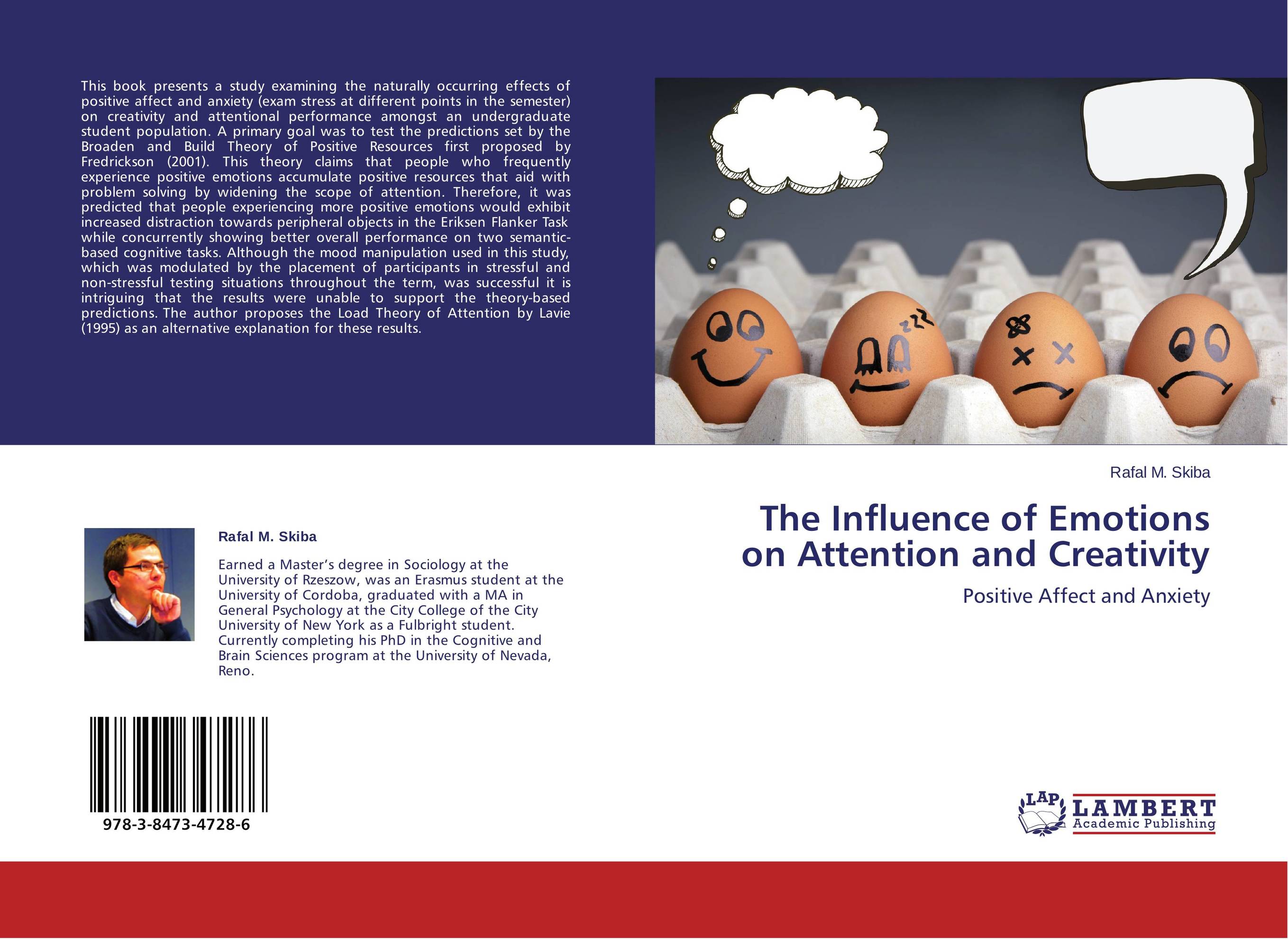| Поиск по каталогу |
|
(строгое соответствие)
|
- Профессиональная
- Научно-популярная
- Художественная
- Публицистика
- Детская
- Искусство
- Хобби, семья, дом
- Спорт
- Путеводители
- Блокноты, тетради, открытки
The Influence of Emotions on Attention and Creativity. Positive Affect and Anxiety

В наличии
| Местонахождение: Алматы | Состояние экземпляра: новый |

Бумажная
версия
версия
Автор: Rafal M. Skiba
ISBN: 9783847347286
Год издания: 2014
Формат книги: 60×90/16 (145×215 мм)
Количество страниц: 88
Издательство: LAP LAMBERT Academic Publishing
Цена: 24203 тг
Положить в корзину
| Способы доставки в город Алматы * комплектация (срок до отгрузки) не более 2 рабочих дней |
| Самовывоз из города Алматы (пункты самовывоза партнёра CDEK) |
| Курьерская доставка CDEK из города Москва |
| Доставка Почтой России из города Москва |
Аннотация: This book presents a study examining the naturally occurring effects of positive affect and anxiety (exam stress at different points in the semester) on creativity and attentional performance amongst an undergraduate student population. A primary goal was to test the predictions set by the Broaden and Build Theory of Positive Resources first proposed by Fredrickson (2001). This theory claims that people who frequently experience positive emotions accumulate positive resources that aid with problem solving by widening the scope of attention. Therefore, it was predicted that people experiencing more positive emotions would exhibit increased distraction towards peripheral objects in the Eriksen Flanker Task while concurrently showing better overall performance on two semantic-based cognitive tasks. Although the mood manipulation used in this study, which was modulated by the placement of participants in stressful and non-stressful testing situations throughout the term, was successful it is intriguing that the results were unable to support the theory-based predictions. The author proposes the Load Theory of Attention by Lavie (1995) as an alternative explanation for these results.
Ключевые слова: Anxiety, attention, emotions, Creativity, Anxiety, attention, emotions, positive affect, cognition



